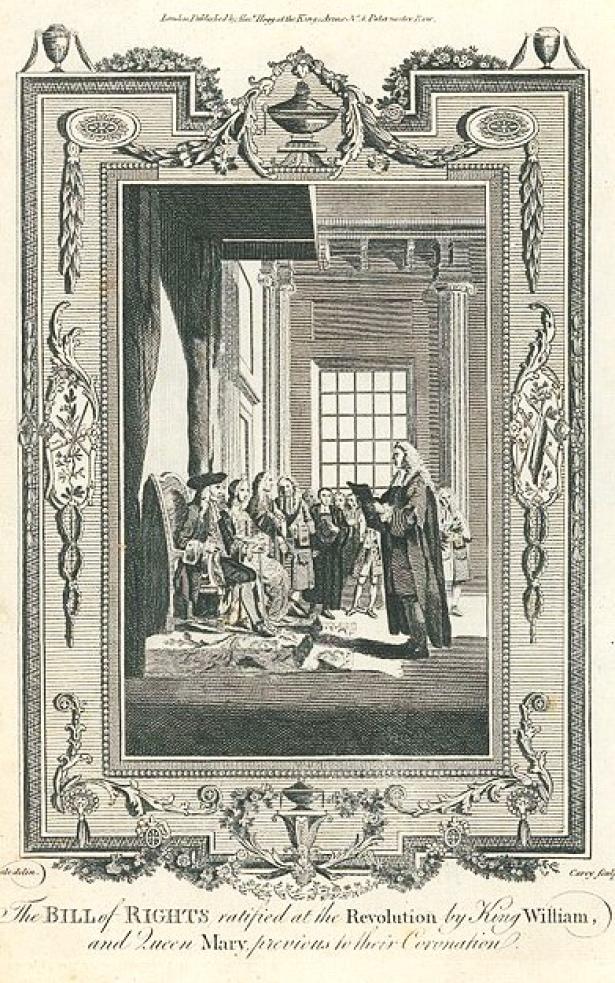The Original Bill of Rights
335 YEARS AGO, on February 13, 1689, a long struggle between the British Parliament and the monarchy culminated in Parliament's making an explicit declaration of its primacy, known as the Bill of Rights 1689. Almost exactly a century later, the United States ratified its own Bill of Rights, the first ten amendments to its Constitution. https://en.wikipedia.org/wiki/Bill_of_Rights_1689
OSHA Comes of Age
50 YEARS AGO, on February 14, 1974, the 2-year-old U.S. Occupational Safety and Health Administration (a mere toddler in the bureaucratic landscape) faced one of its first regulatory emergencies and swung into action. Until this day, OSHA had, for the most part, been enforcing health-related regulations that it had "inherited" from a non-governmental organization, the American Conference of Governmental Industrial Hygienists. Feb. 14, 1974, was different, because OSHA had just learned that the US chemical industry had been concealing an ugly secret: chemical workers were dying because a major raw material for making plastic -- vinyl chloride -- was an potent carcinogen. The Manufacturing Chemists Association had known about the hazard for years, but had been keeping the information secret. Only 58 days later (lightening speed for a major bureaucracy), OSHA had written and began to enforce an emergency regulation that gave thousands of chemical workers a chance to live long enough to collect a pension.
Shake, Rattle, and Roll
70 YEARS AGO, on February 15, 1954, Big Joe Turner made the first recording of "Shake, Rattle, and Roll" for Atlantic Records. It was soon a big hit in Phoenix, Arizona, where it introduced me and many of my friends to what was, for us, a brand-new musical genre. https://youtu.be/Y9wTQsAgktg?si=WhXrqRilrJ_Yt1wB
A 1969 Win for Black Studies in Dixie
55 YEARS AGO, on February 16, 1969, many months of student demonstrations and building take-overs at North Carolina's Duke University could take credit for a major victory: the administration agreed to establish a Black studies program, the first of its kind at a university in the Old South. https://guides.library.duke.edu/duke-student-activism/allen-building-ta…An
FBI Frame-Up Falls Apart
25 YEARS AGO, on February 17, 1999, the frame-up of Black Panther Party leader Geronimo Pratt that had been engineered by the FBI and the Los Angeles Police Department came to an end, at last. Pratt, who had been imprisoned 27 years for a murder he did not commit, had been let out of prison in May 1997, when his conviction was overturned, but he was not truly free until February 1999 when the Los Angeles district attorney announced that he would not attempt to try Pratt again because there was no evidence against him. Pratt's conviction had been overturned when the court ruled that prosecutors should have disclosed that their main witness was a 4-time felon and paid FBI informer. According to a later-disclosed FBI document, Pratt had been targeted by the FBI's COINTELPRO operation, which aimed to "neutralize Pratt as an effective BPP functionary," according to an FBI document. Later, Pratt sued the FBI and LAPD for false imprisonment and received a $4.5 million settlement. As a free man, Pratt dedicated his life to working for those wrongfully incarcerated. He died in June 2011. https://www.blackpast.org/african-american-history/pratt-geronimo-1947-…;
Compensation at Last for Black Lung
55 YEARS AGO, on February 18, 1969, 282 West Virginia coal miners started a wildcat strike to demand that Black Lung Disease, otherwise known as coalworker's pneumoconiosis, be recognized as a compensable occupational disease. The strike, which spread until more than 40,000 West Virginia miners were out, forced West Virginia's governor to sign Black Lung compensation legislation. Not too long after, Congress passed the Federal Coal Mine Health and Safety Act. https://theclio.com/entry/22876
A Rare Espionage Act Acquittal
105 YEARS AGO, on February 19, 1919, the Socialist journalist Scott Nearing became one of the few activists to be acquitted of the charge of violating the Espionage Act by openly opposing U.S. participation in World War 1. https://www.islandinstitute.org/working-waterfront/remembering-the-sedi…


Spread the word